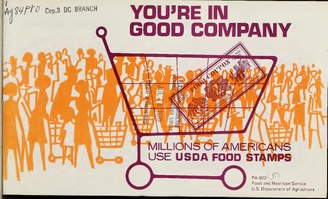Debt ceiling negotiations are still happening, and we still do not have a deal. One point of discussion: food stamps. Some Congressional Republicans want older Americans to prove that they work or are looking for work at least part-time to get those benefits.
Work requirements for federal food assistance are not new. They were largely suspended during the COVID-19 pandemic and are phasing back in now.
But generally, since the mid-90s, the supplemental nutrition assistance program — known as SNAP — has had rules. Able-bodied adults under 50 have to work at least 20 hours a week if they don’t have dependents.
That would change under the GOP plan.
“This basically just pushes the upper age limit to 56,” said Matt Weidinger, a senior fellow at the conservative think tank American Enterprise Institute. He backs this idea — in part, on principle.
“There’s not large budget savings attached to this, it boils more down to the question of, should individuals be expected to do something in exchange for benefits,” he said.
Weidinger believes the budget savings would be helpful too. Plus, he said more older Americans working could help the labor shortage.

Donna Ginther, an economics professor at the University of Kansas said she gets why federal spending cuts are on the table.
“The social safety net, is a huge part of the cost of the federal government,” she said. “And it’s very difficult to tame budget deficits without touching the social safety net.”
But, Ginther said, SNAP benefits have already been reduced when the pandemic emergency was lifted, and that’s on top of grocery bills that are climbing these days.
“We’ve had huge food inflation. So we’re teetering on having more people go hungry, by putting these restrictions in place,” she said.
Some states already have work requirements for adults in their 50s, including Ginther’s state of Kansas. Nearly 10% of people there are food insecure.
“If we do go into a recession, then these policies are going to have a real bite,” Ginther said.
She argues changes to SNAP would be felt most by children and people with disabilities. But they could have broader consequences too, even for people who are already working but have unpredictable schedules.
“Because they might have hours that fluctuate that they can’t control when they’re going to be scheduled,” said Elizabeth Lower-Basch with the Center for Law and Social Policy.
She says one effect would be more pressure on food banks as people look for alternatives to feed their families.
























